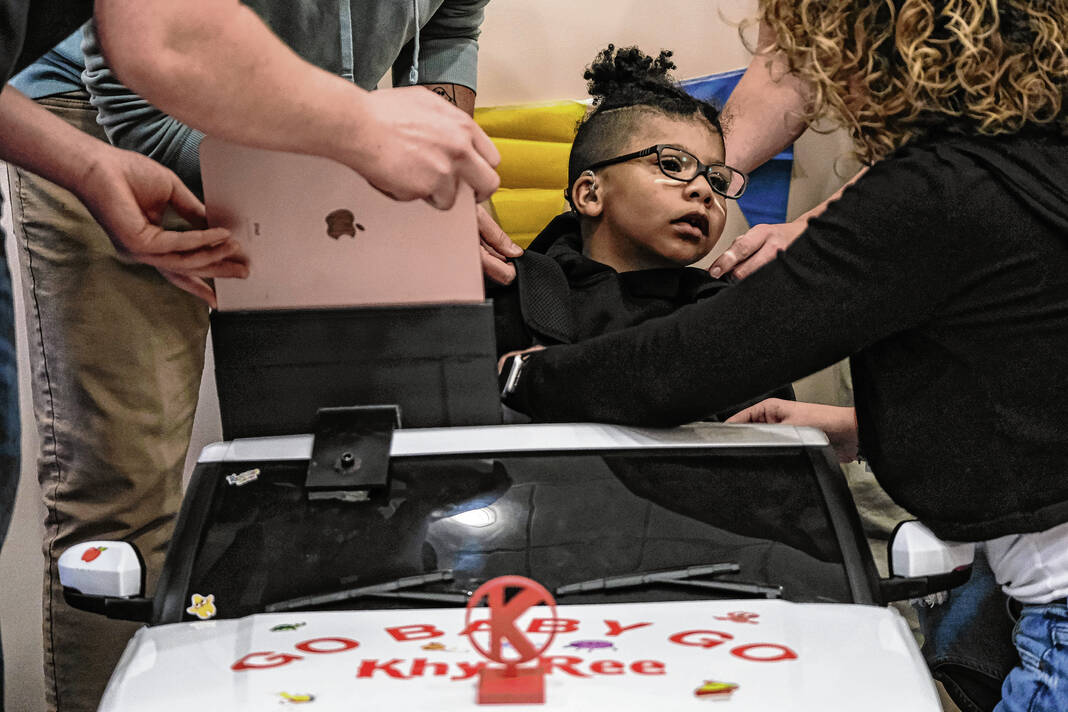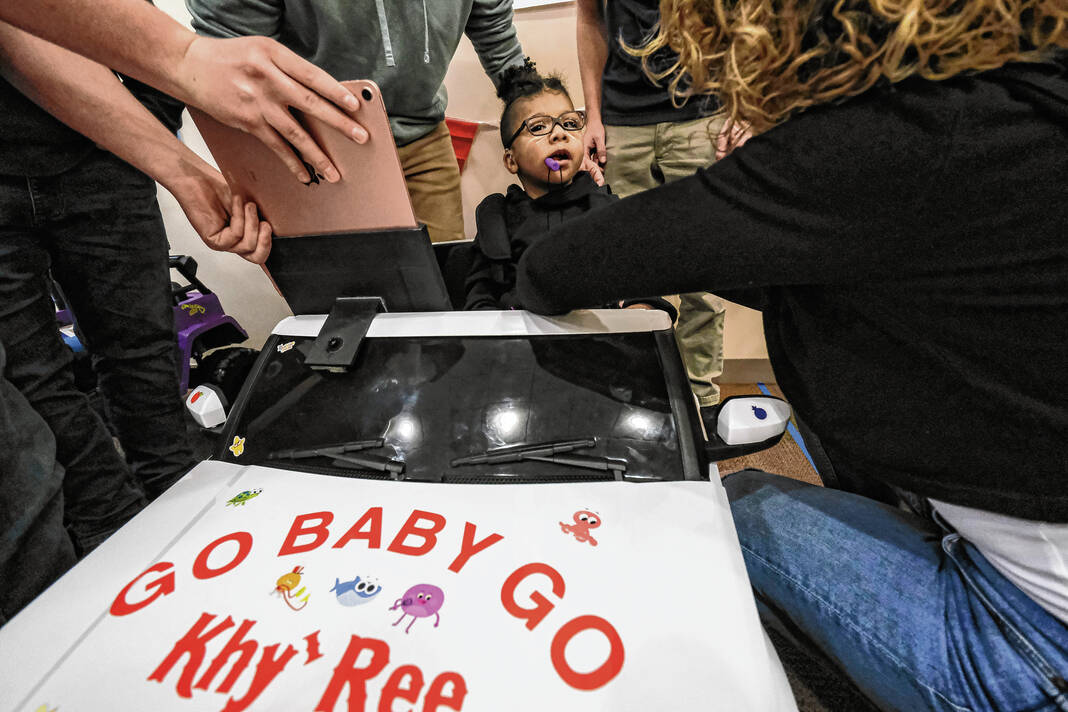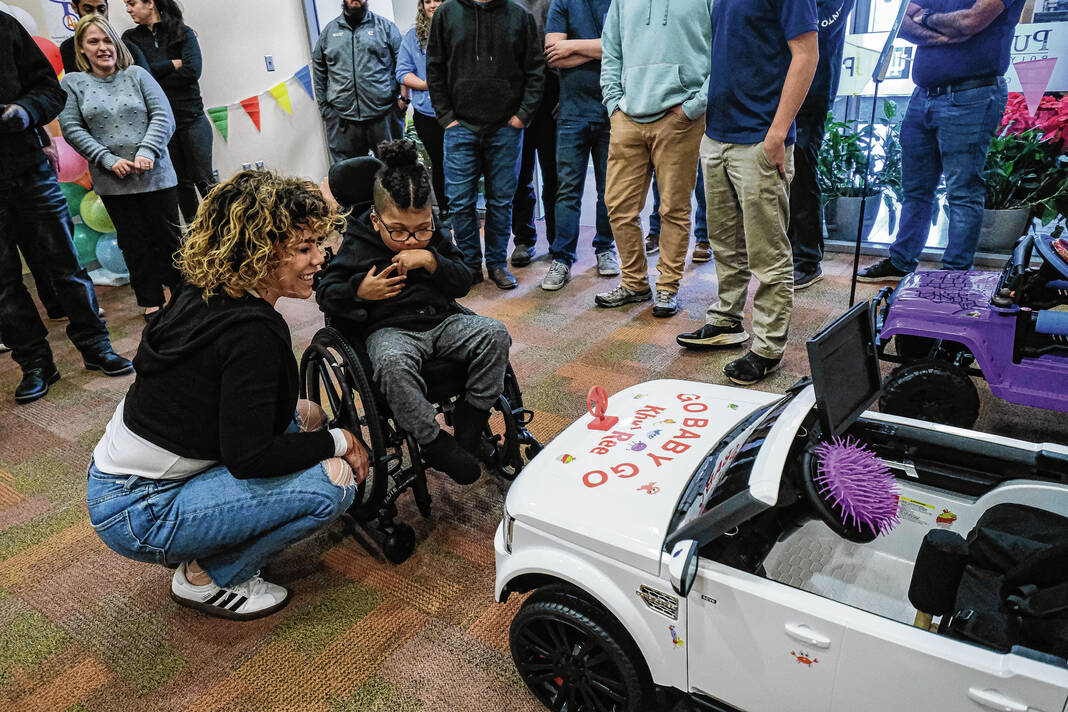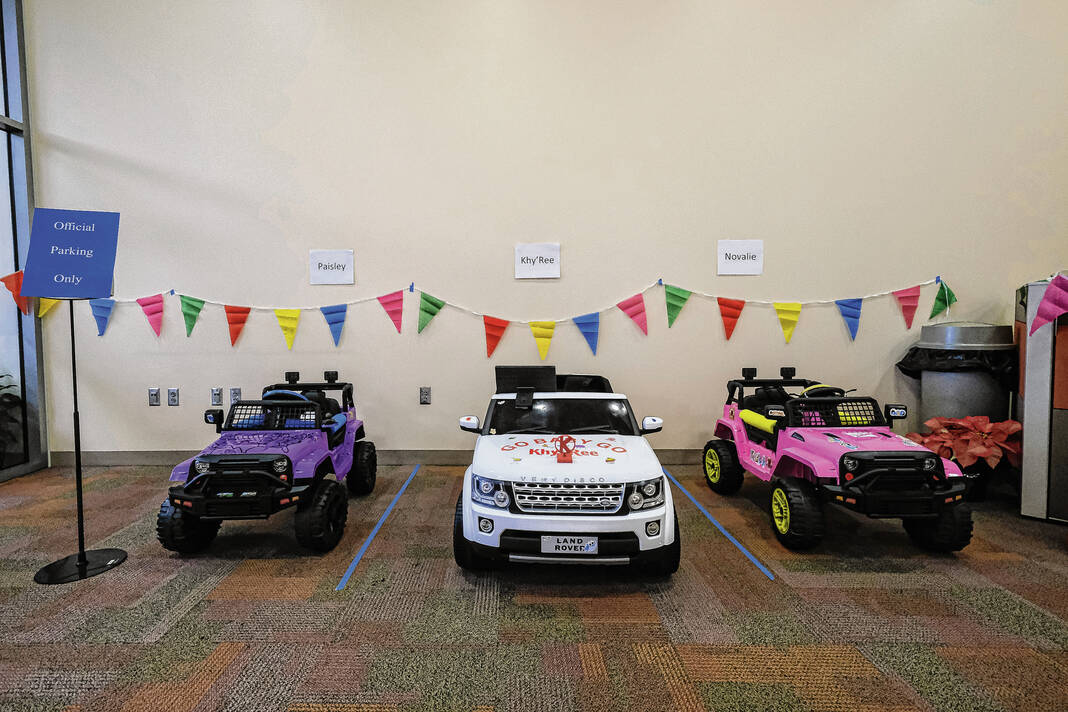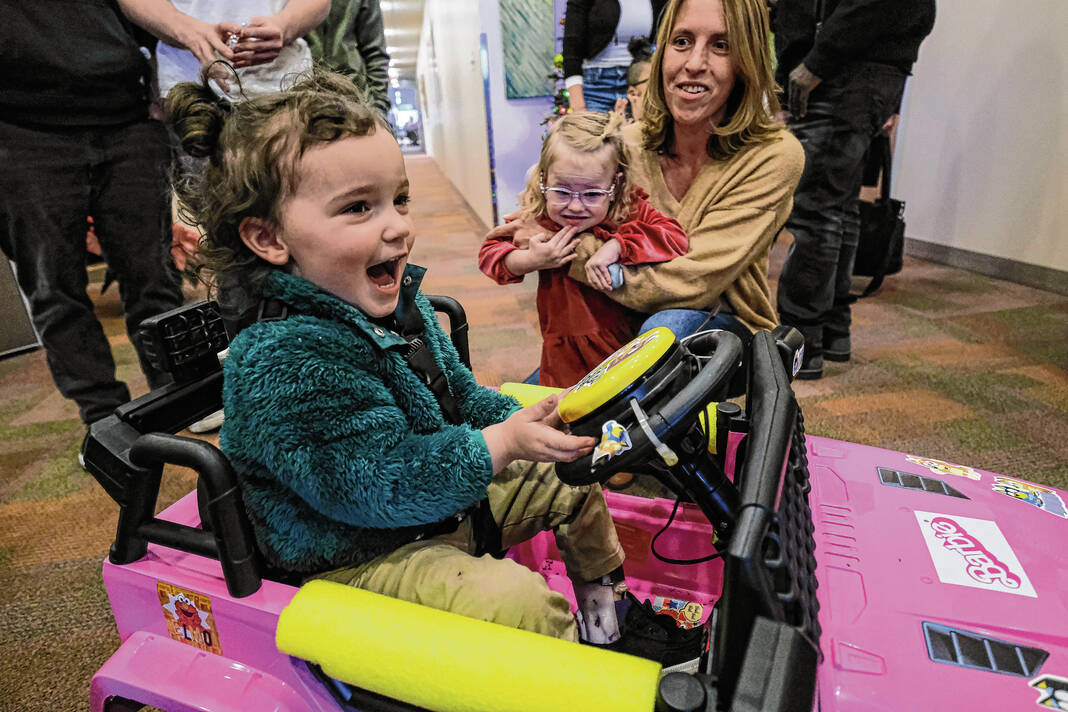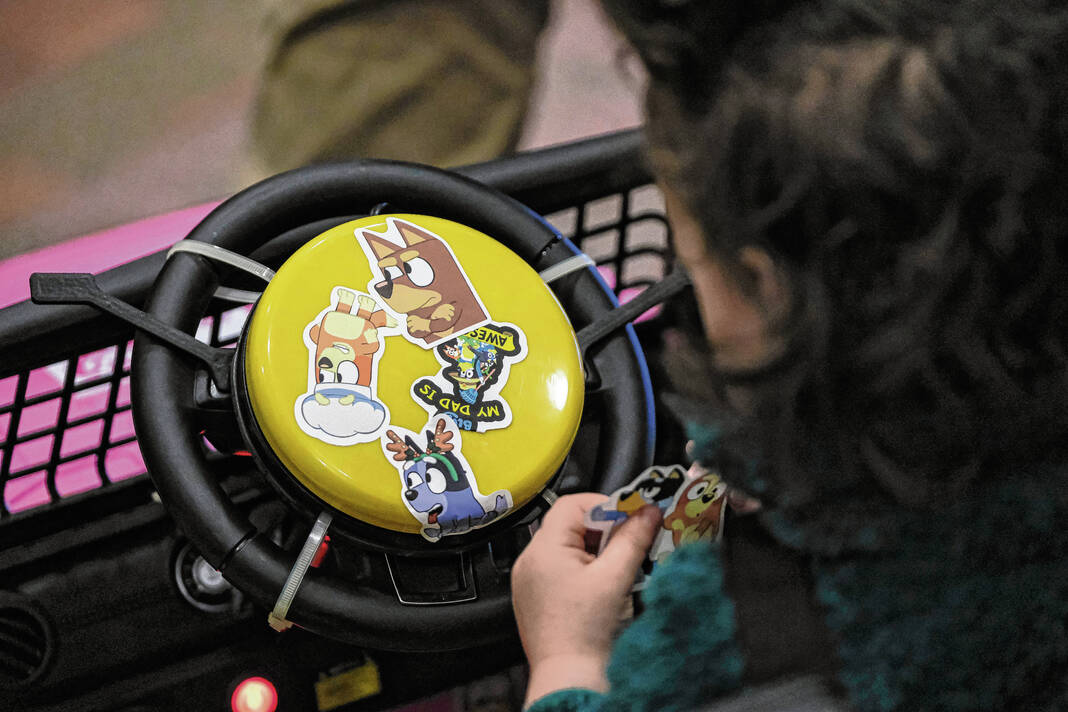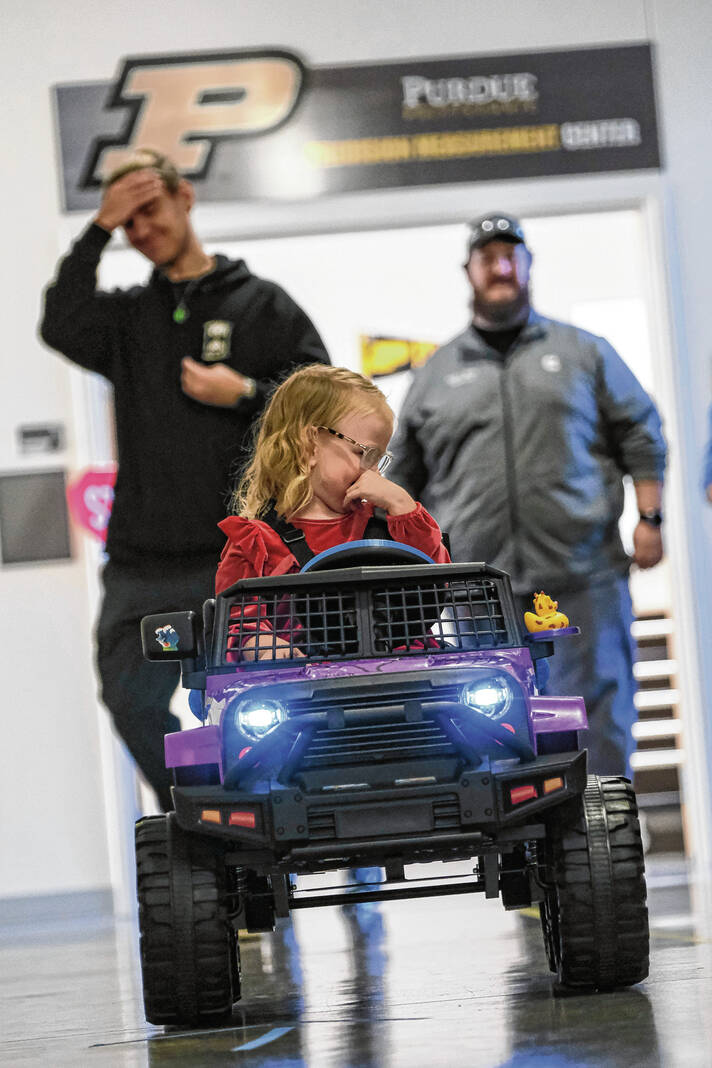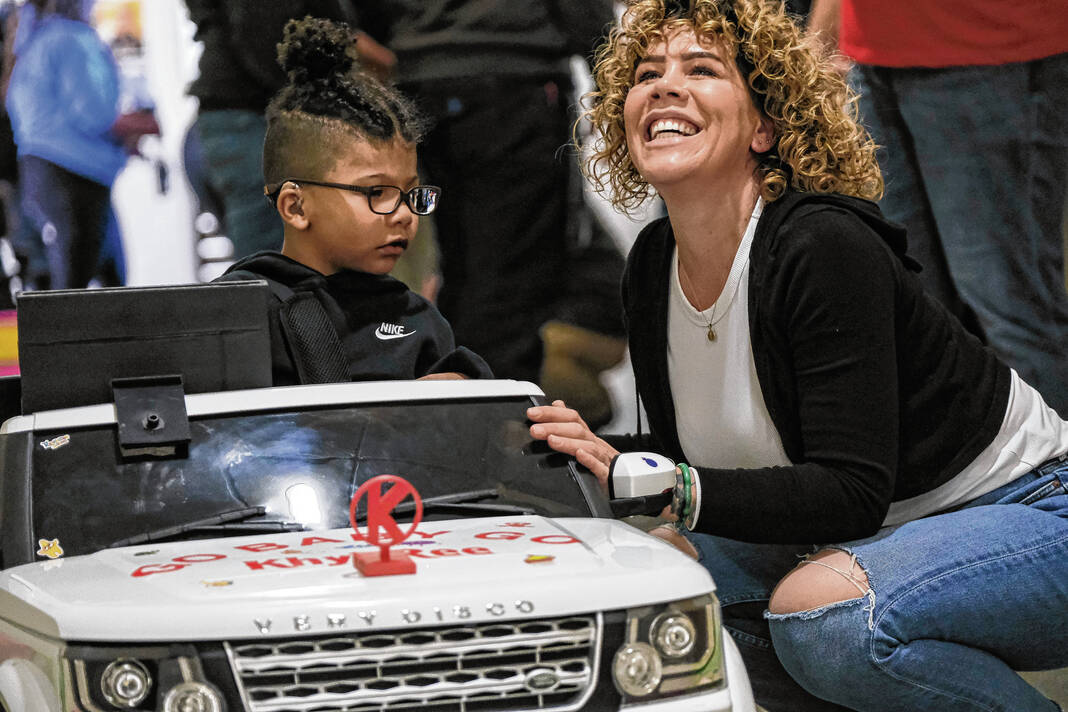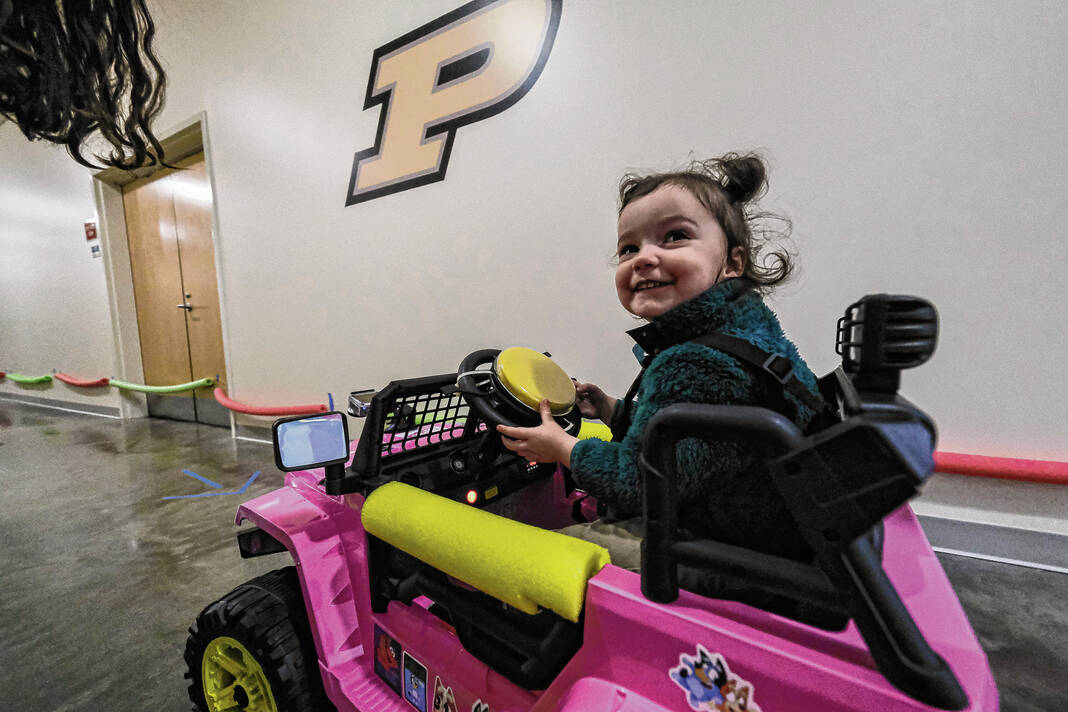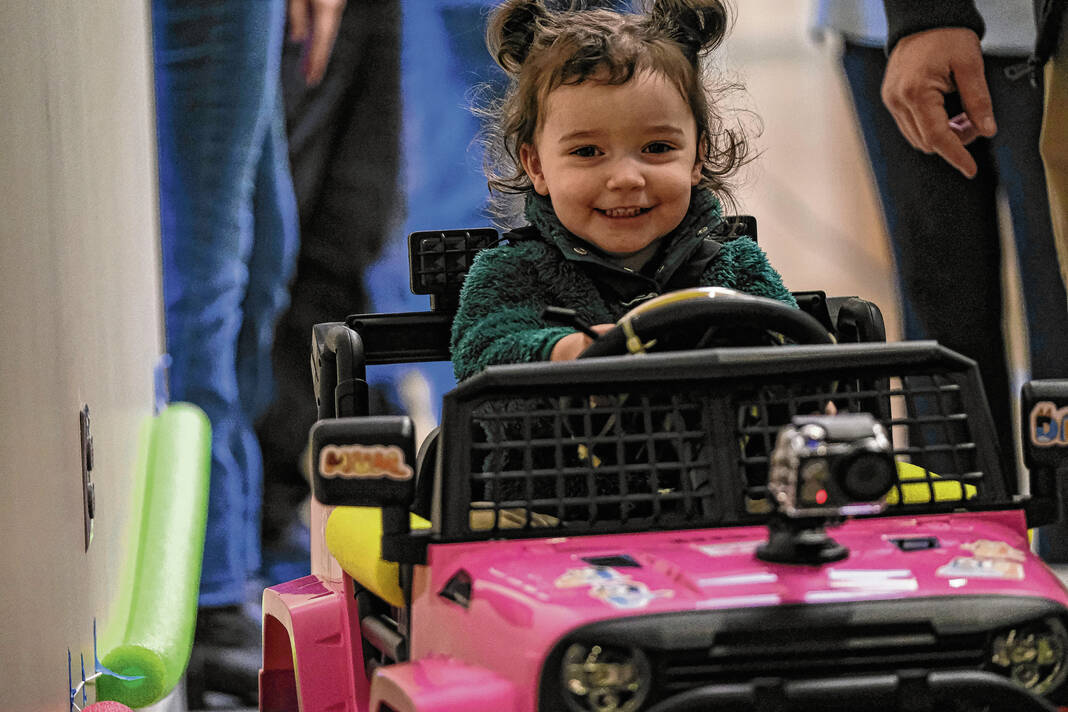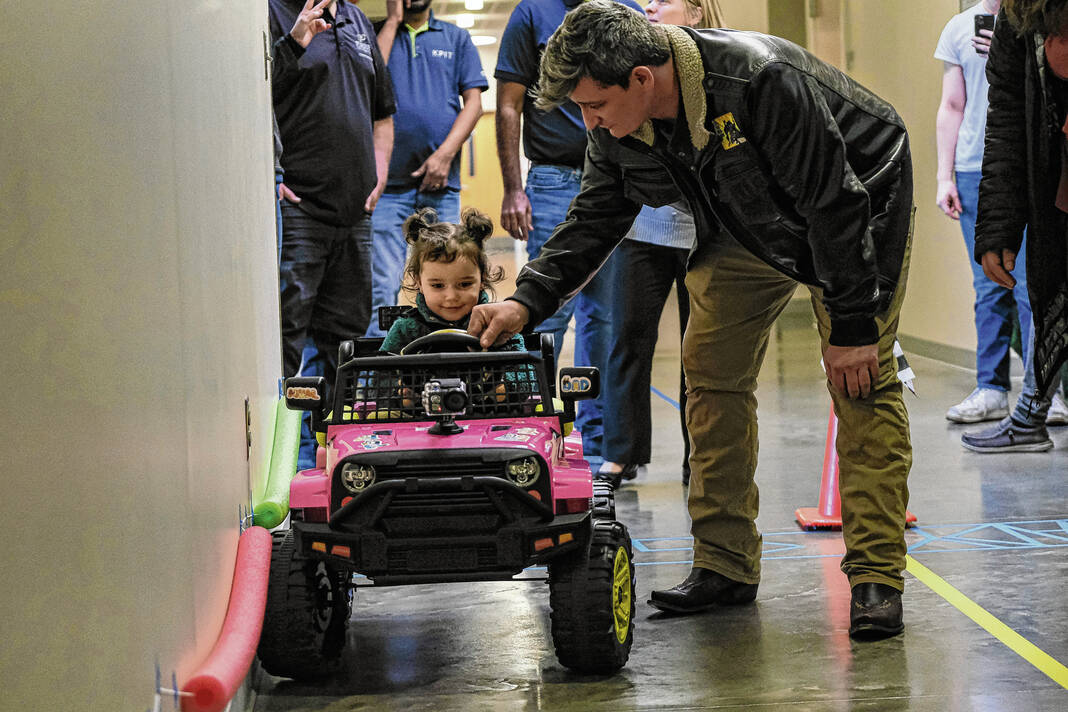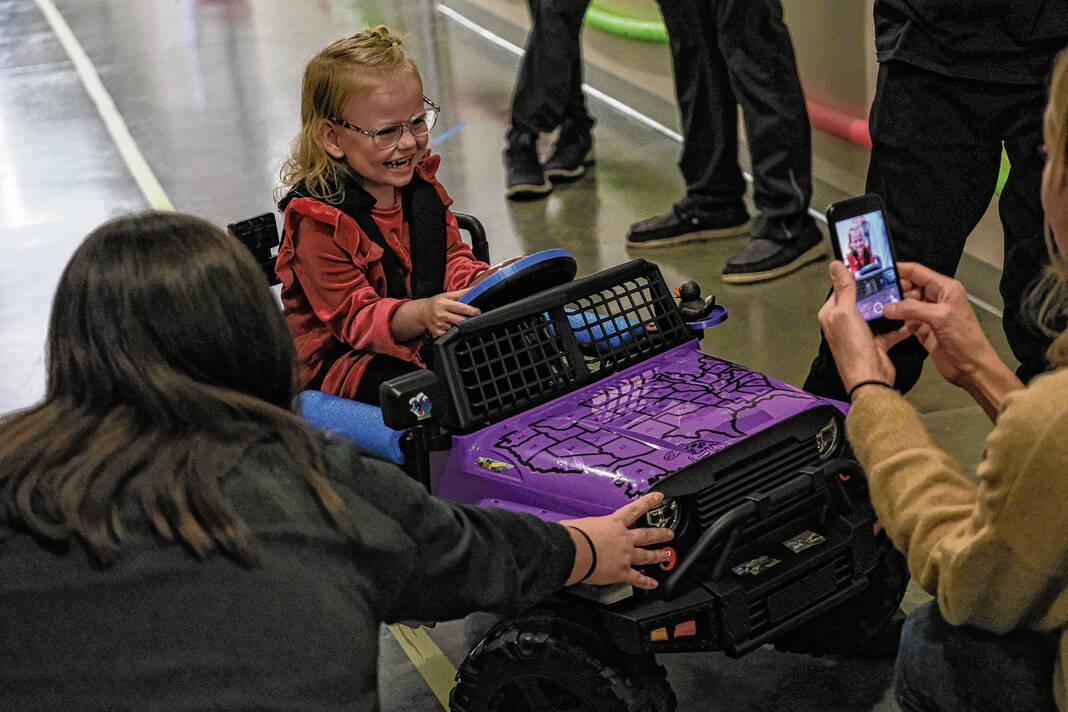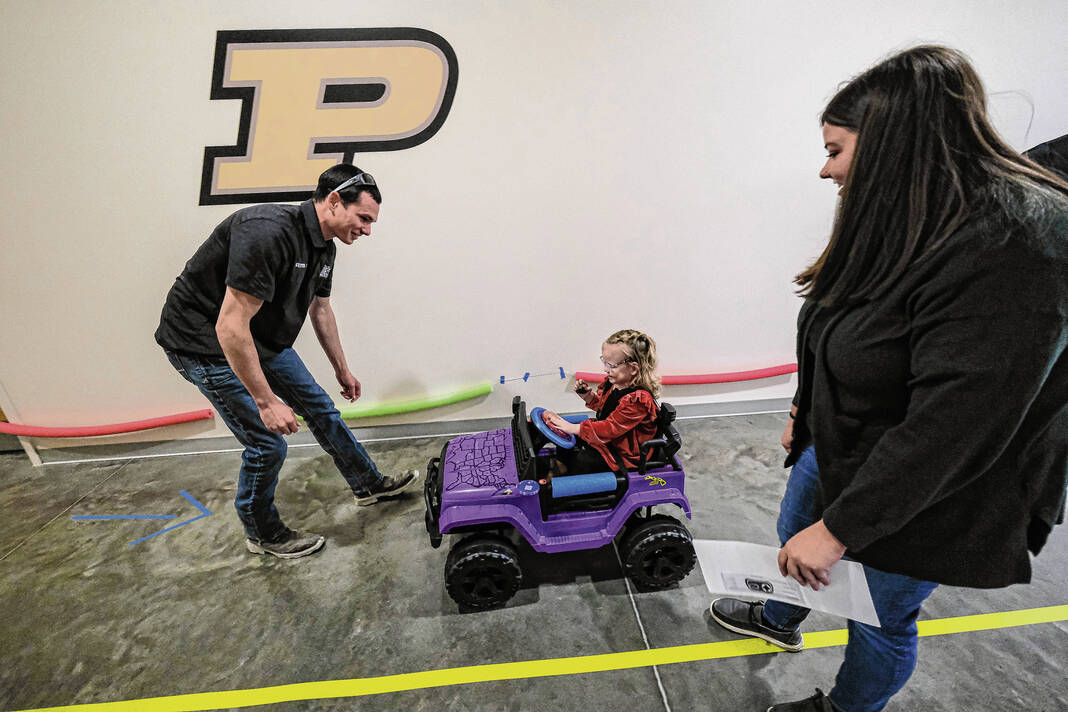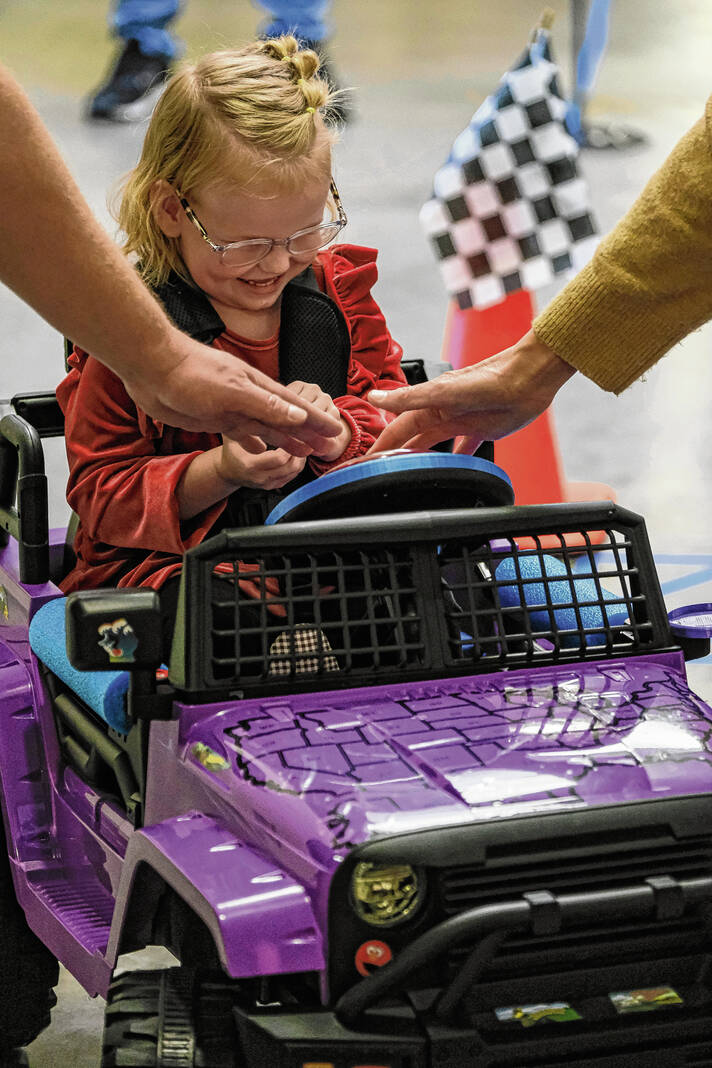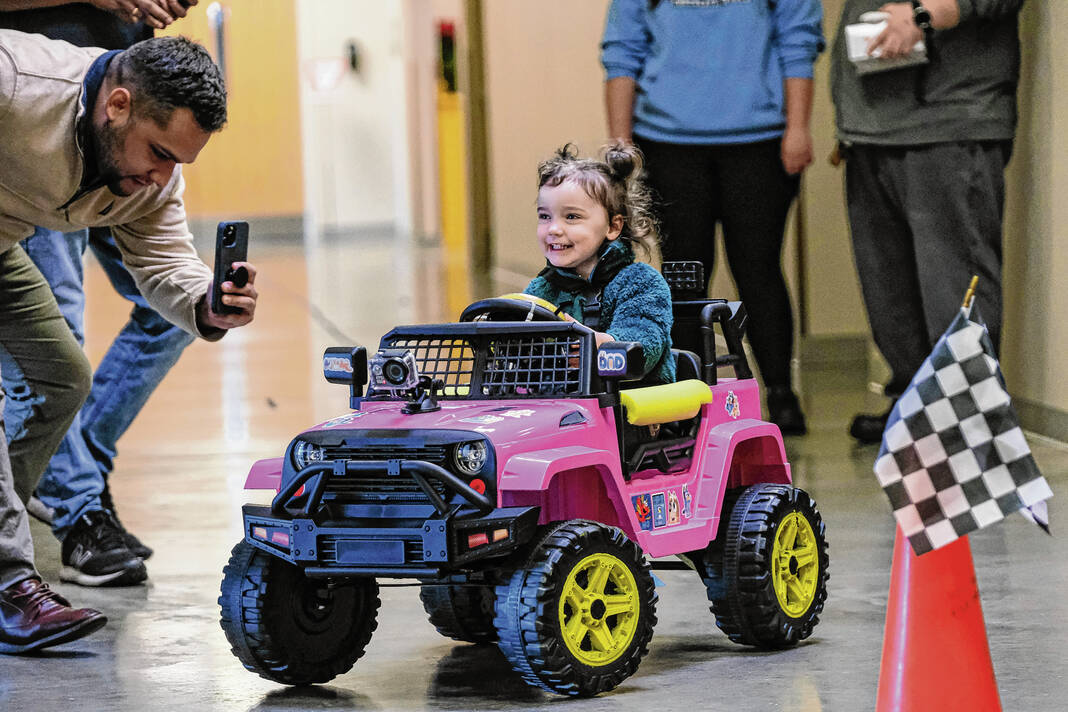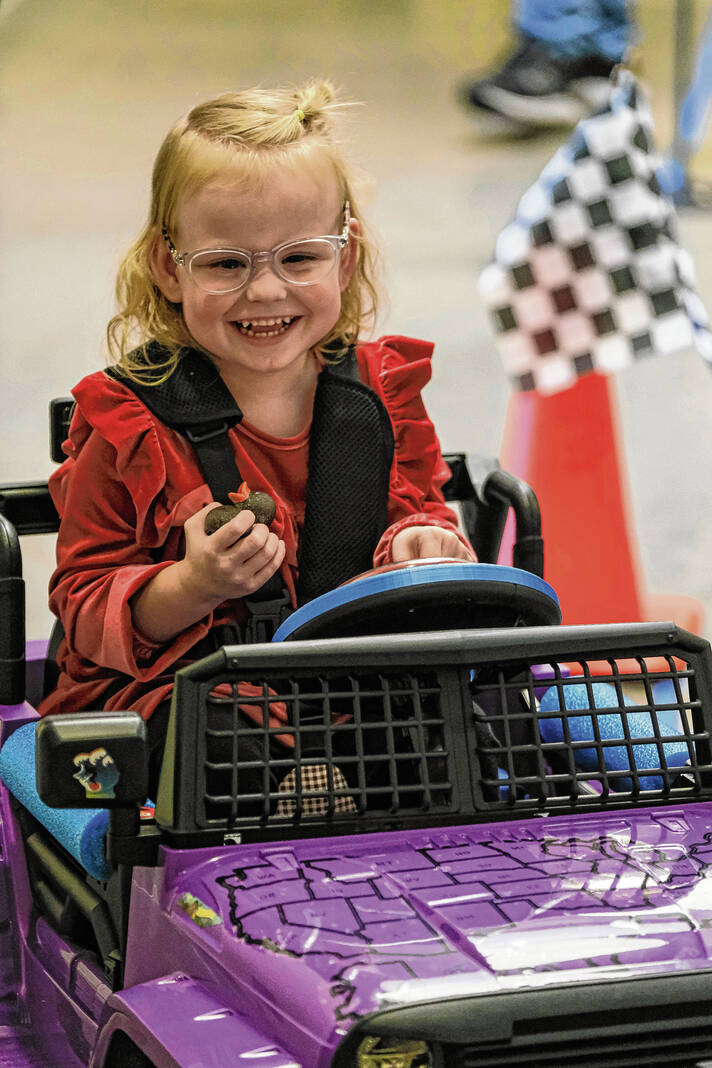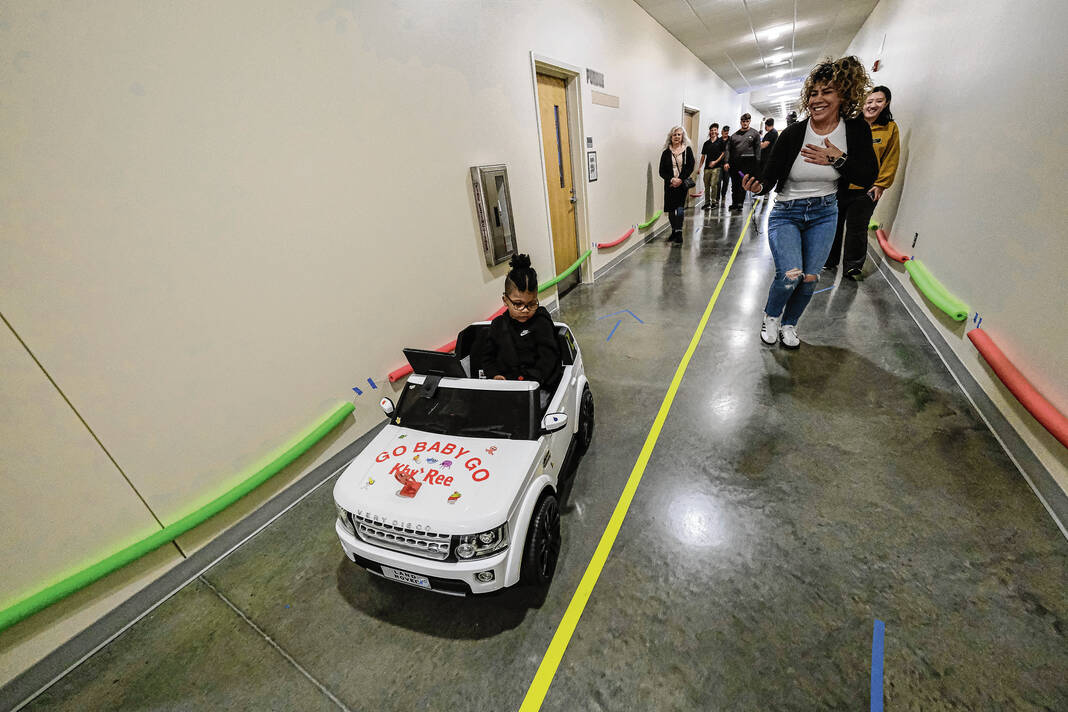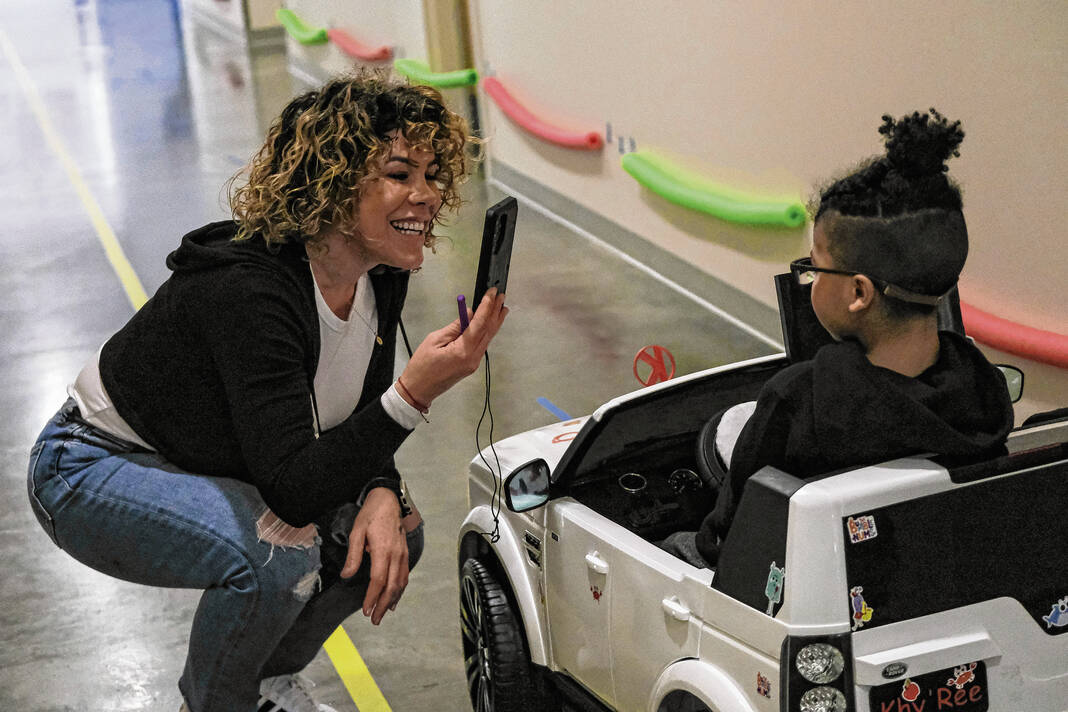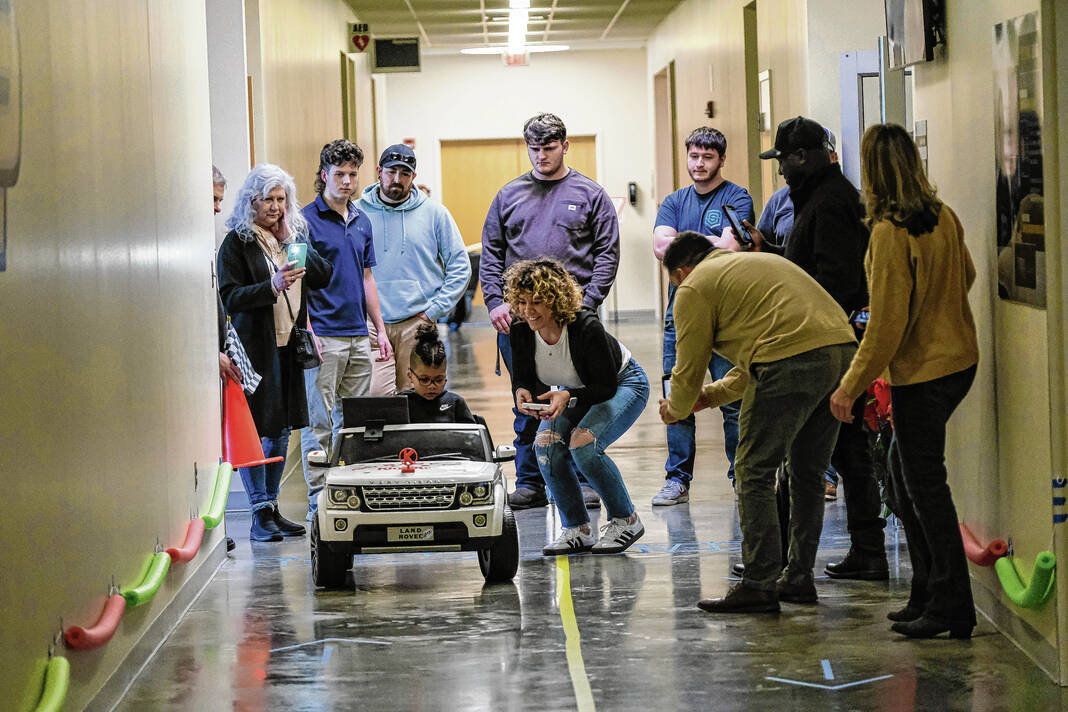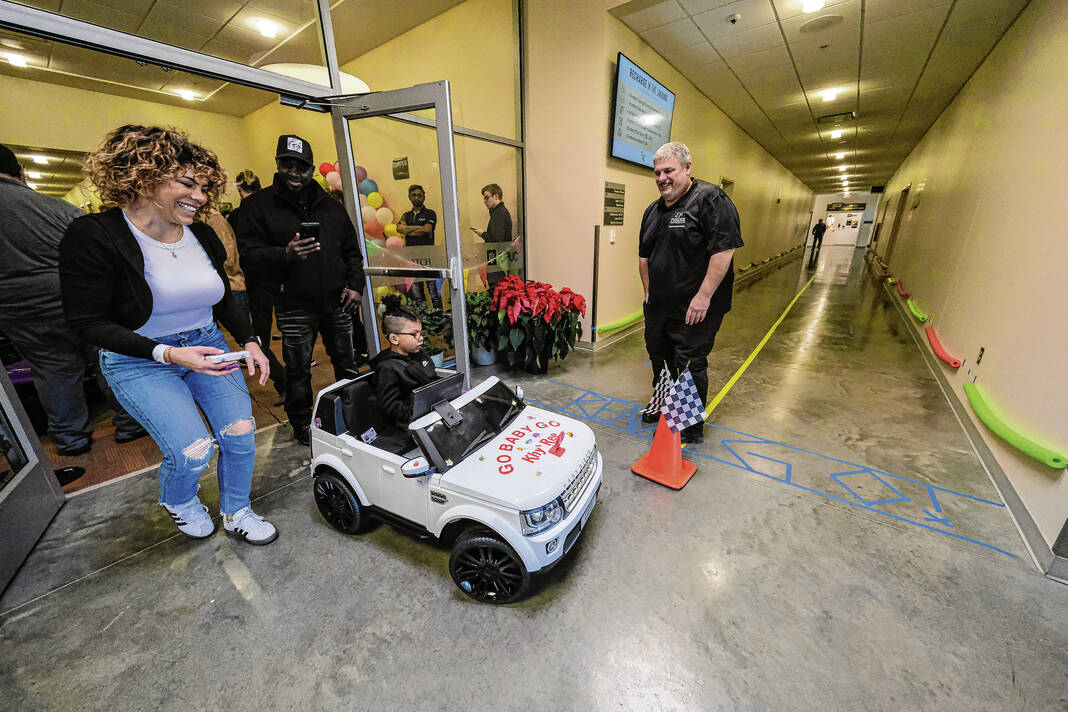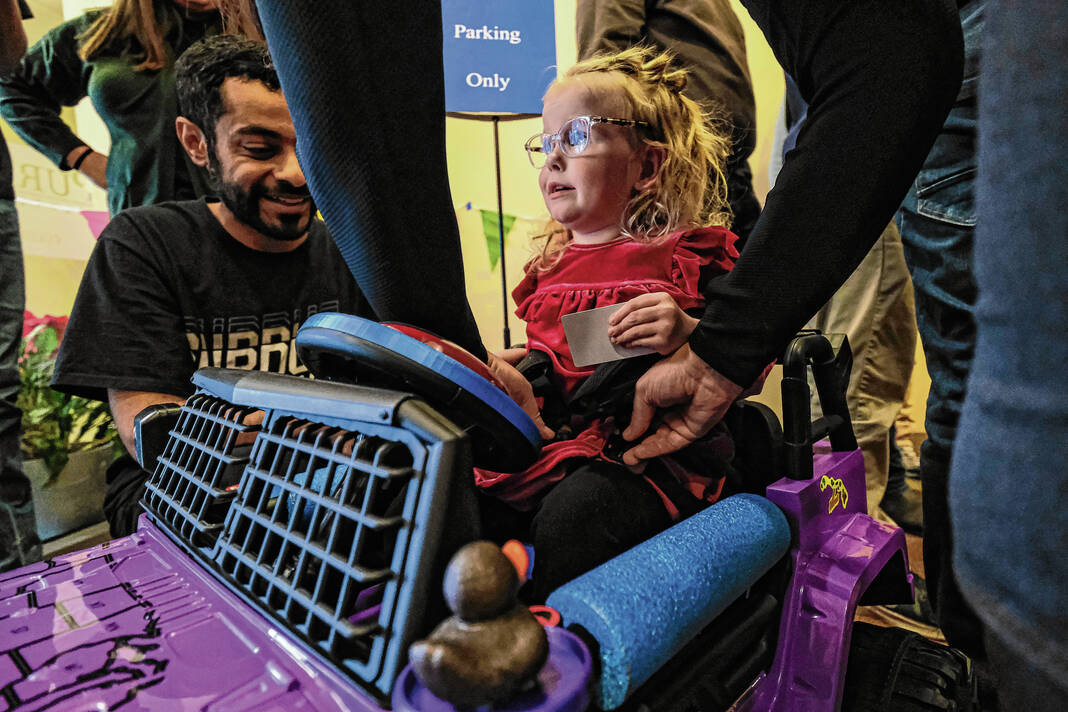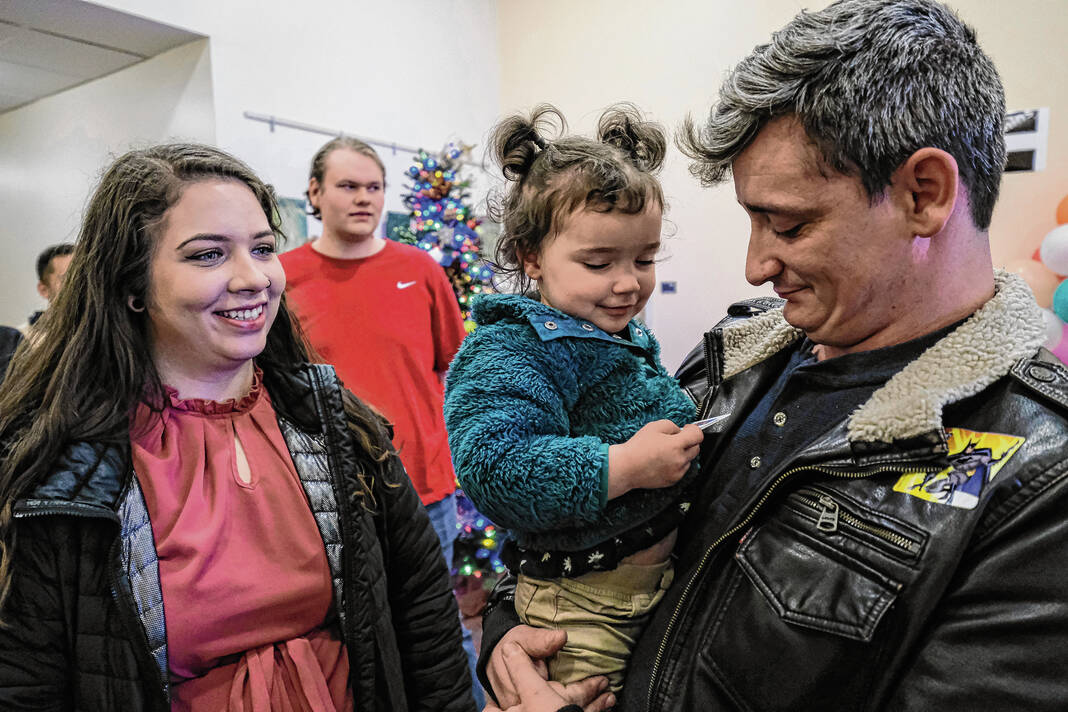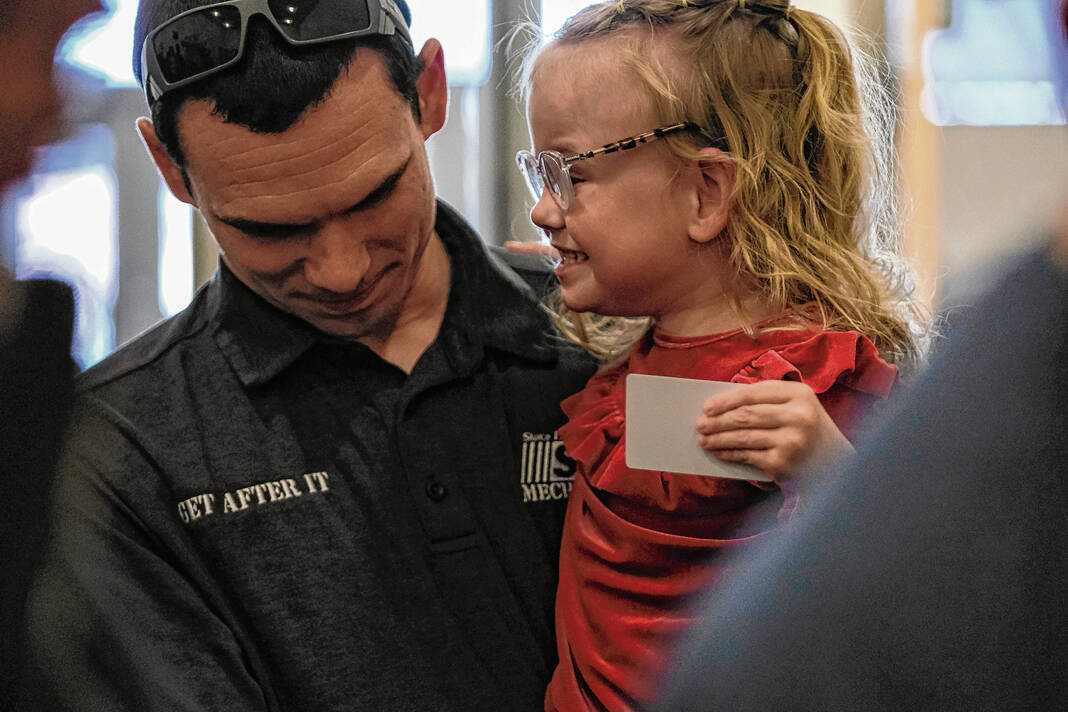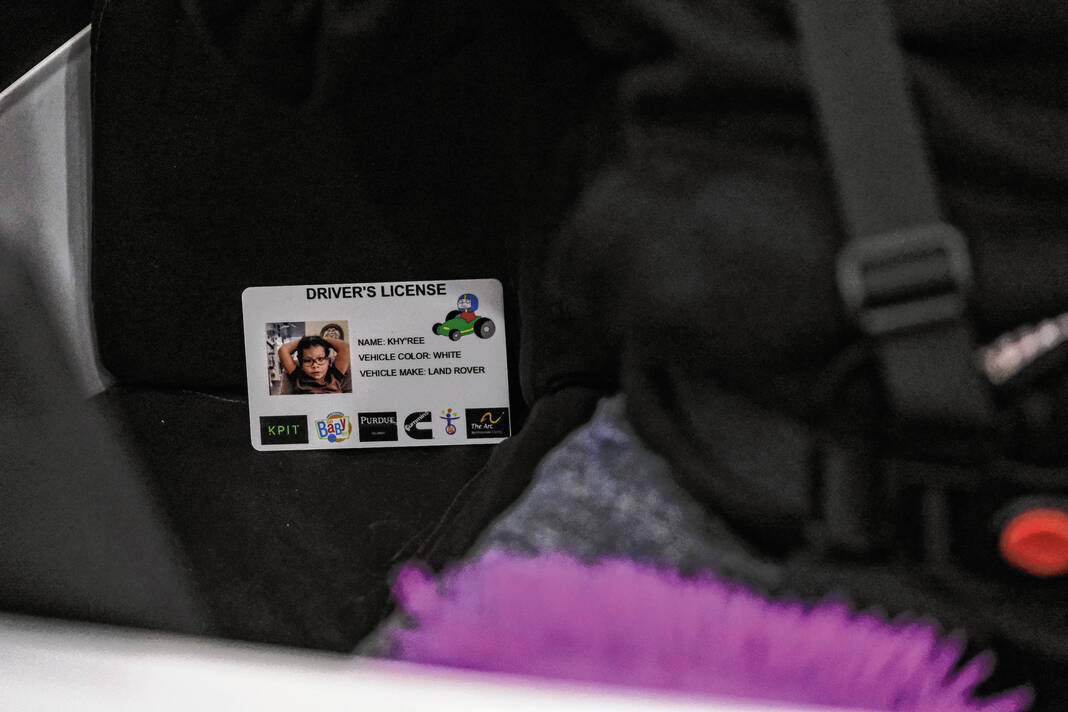As the holiday season rolls on, three local youngsters recently got one of the biggest items on their wish lists.
Students from Purdue Polytechnic Columbus presented customized, battery-operated ride-on cars to children with mobility impairments at no cost to their families on Dec. 7.
The project was a collaboration between a variety of partners, including Purdue, Cummins Inc., the Arc of Bartholomew County, Assisted Independence and local physical therapist Rebecca Scholl.
“The kids and families were super excited,” said Scholl. She added that volunteers from KPIT were on site to help make adjustments to the cars, when needed, and Assistant Independence provided a “driver’s license” to each youngster.
Cummins purchased all of the equipment needed to build an “electric motorized vehicle for the child to be able to control on their own,” and students in the Gateway to Engineering class built and customized the cars for each recipient, said Nancy Lollar, director of Purdue Polytechnic Columbus.
The endeavor is a local version of the GoBabyGo project, which started at the University of Delaware and has been adopted by schools and service groups around the world.
Scholl said it was great to see students from Purdue Polytechnic Columbus connect with the kids and to see the youngsters react to their customized vehicles, which included special features such as button covers with different textures to give 5-year-old Khy’Ree Vaughn a sensory experience.
“They were excited,” she said. “Khy’Ree is non-verbal, but he had a huge smile on his face and kept clapping.”
Students were able to take their rides for a test drive in a hallway at the Advanced Manufacturing Center of Excellence, which was decorated to look like a roadway.
Ashley Fortner said her 2-year-old, Novalie, was “a little apprehensive” at first but soon warmed up to her ride, which included some of her favorite colors and TV characters.
“We actually ended up staying longer than any of the other kids that got their cars, because Novalie just did not want to leave,” she said.
Novalie was born with a condition known as lipomyelocele. She was asymptomatic until this past spring, when she was admitted to Riley Children’s Hospital with a spinal infection.
Fortner said she’s very thankful for the local GoBabyGo program and hopes it continues, as it’s made a difference in their lives.
“I’m sure that Nova probably thinks that it’s just a fun thing, but for us it means a lot, because as much as I’d say that the city that we live in tries to make things accessible, there’s still just so much that isn’t as far as playtime goes,” she said. “…It’s harder for Nova to have fun than it is for her sisters, because they can walk around and she cannot. And I think the biggest thing for us is noticing that after we came home from the hospital, versus before when she could walk. So this car, I think it’ll help a lot in letting her get out and play similar to how she used to.”

